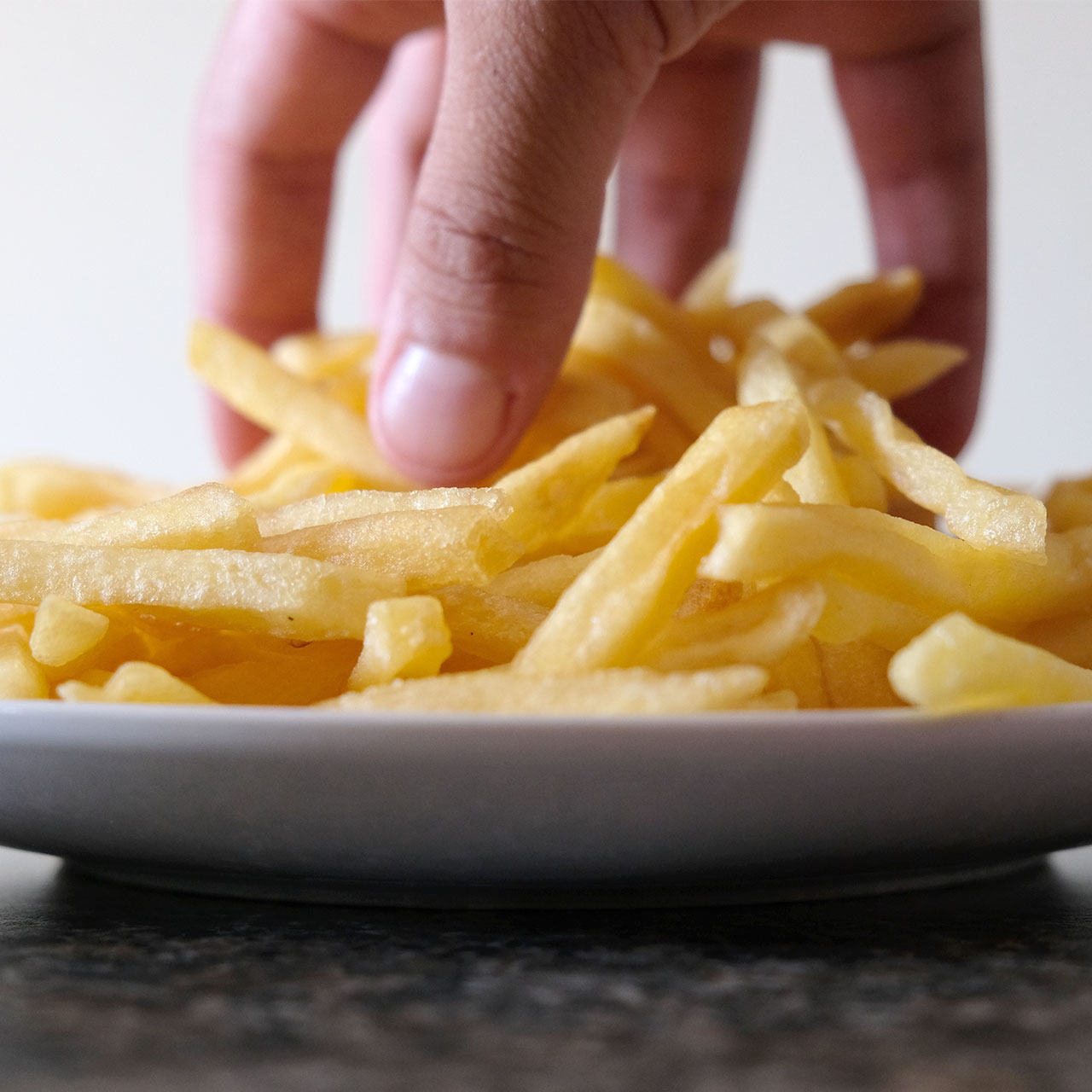So, you had one (or two, or three) too many hot dogs at the Fourth of July cookout, and now you’re worried about the health effects, the fact that you’ve sabotaged your weight loss goals, and, frankly, your bloated stomach. Don’t fall into despair! We all overeat from time to time; knowing what to do next so that you can move forward is crucial to keeping your body and your emotions in great shape.
While it may be tempting to fall into doom and gloom and vow to follow strict calorie restrictions for the next three months, it’s important not to punish yourself. Heavy restriction with calories can lead to even more overeating later, and besides that, your body still needs nourishment, even if you ate too much earlier in the day.
So, what should you do? To find out, we spoke to Casey Seamon, RD, LDN, a Noom Coach Manager. Find her step-by-step approach to getting back on track below.


1. Reflect and Reframe
The first thing you should do when in order to move on from overeating is reflect on why you overate in the first place. "Building awareness around choices is so important in understanding what happened in the moment," Seamon says. "Pause for a moment and reflect on what led up to your overeating. What challenges did you experience at the moment? Was it an emotional trigger? Were you aware you were overeating at the time? Taking time to think through the experience helps you better understand and from there you can make an action plan moving forward."
From there, you should use it as an opportunity to learn. "Overeating doesn’t have to be a failure or a setback! It can be a chance to better understand yourself and do things differently next time," Seamon says. "If you spend time thinking through the choices you made and what led you to this point you can better know how to be prepared. When we leave the guilt behind we can see this as a positive experience rather than a negative one."

2. Honor Your Emotions
As you reflect, a lot of emotions might come up. It's important not to ignore those or punish yourself for feeling them. "It’s okay to feel whatever you may be feeling. Maybe you’re frustrated with yourself or disappointed, or maybe you’re fully aware of everything that led you to overeating and you aren’t bothered by it," Seamon says. "Whatever is coming up for you is okay, and taking a minute to check in with those emotions and holding space for them can be pivotal in giving yourself the acceptance and love you need to work through your journey."

3. Forgive Yourself and Move On
Once you've thoroughly reflected and worked through your emotions, it's time to forgive yourself and move on. "Everyone makes choices they aren’t proud of! It doesn’t mean you aren’t dedicated, focused or committed to your goals," Seamon tells us. "It just means you’re human. If you’re being hard on yourself and telling yourself you’re a failure for overeating, then feel free to cut yourself some slack."
Ultimately, remember that "Overeating doesn’t have to derail your progress entirely. You can move on from this experience. There will be so many more opportunities in the future to make new and different choices that are aligned with your goals." Well said!
READ MORE: 3 Dieting Mistakes That Are Stopping You From Losing Weight, According To Experts


























